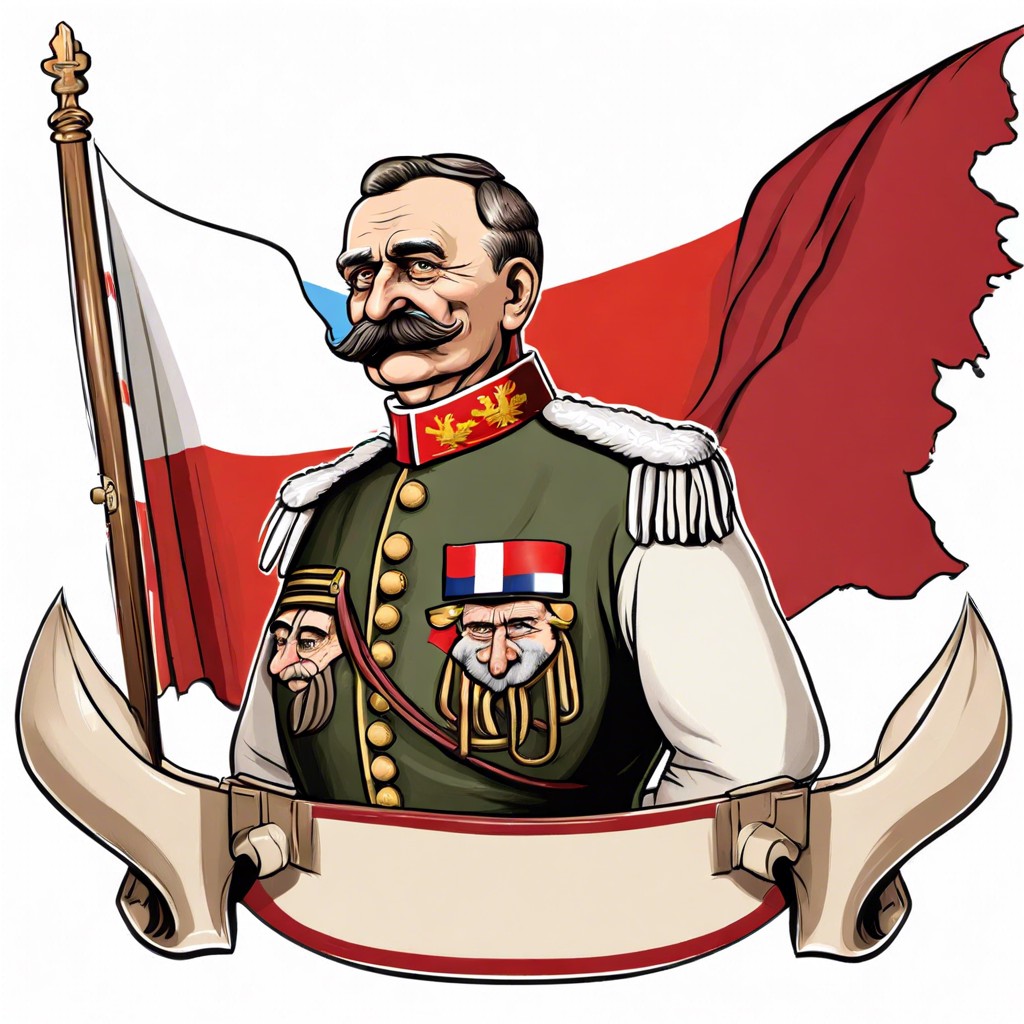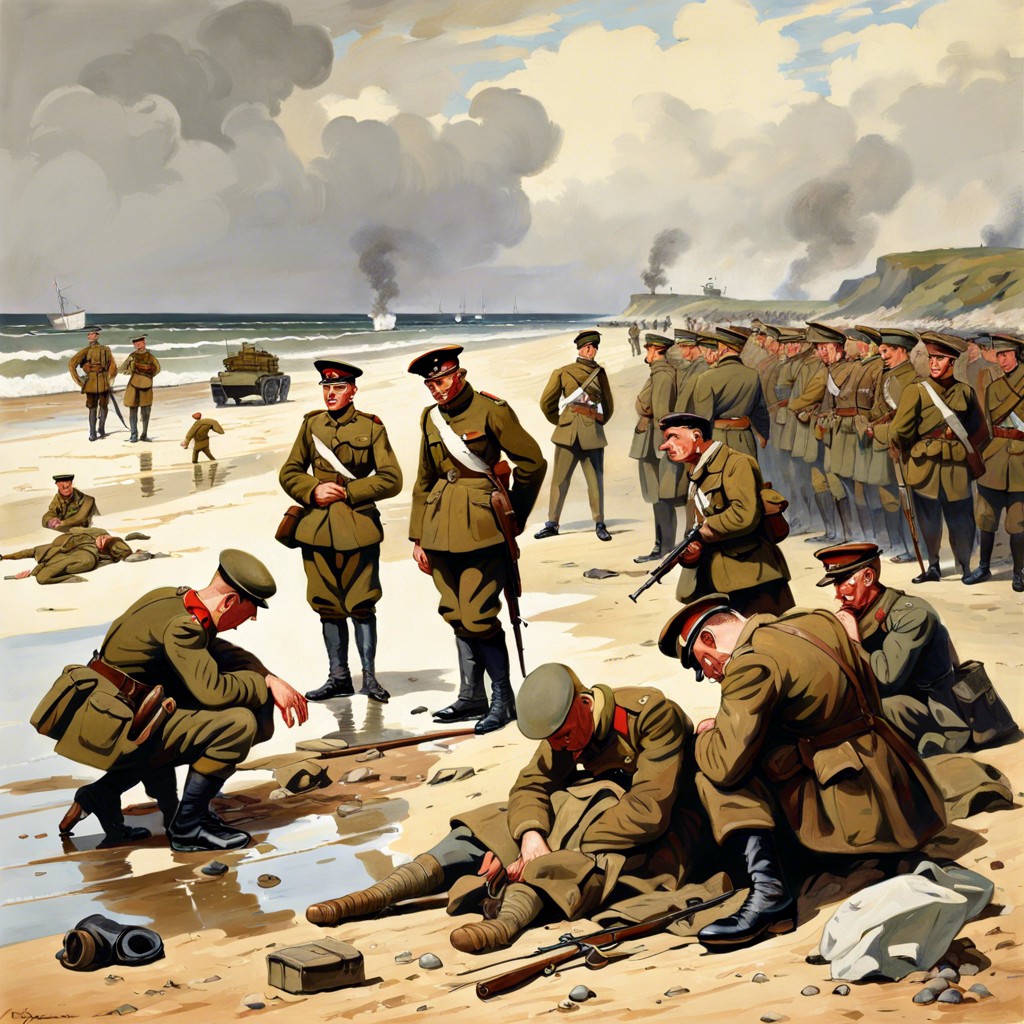Imagine how the survival of Austria-Hungary would have reshaped European borders, politics, and cultural dynamics.
Imagine a world where one empire’s survival flips the entire script of history. The Austro-Hungarian Empire, not just an antique relic of the past, but a thriving powerhouse shaping European borders, political landscapes, and global dynamics. Curious about how this could rock the boat of world history? Buckle up, because we’re diving into the economic ripples, cultural tales, and geopolitical shockwaves of an unbroken Austria-Hungary, keeping you hooked from start to finish.
Key takeaways:
- Europe’s borders would remain stable, reducing conflicts.
- Complex governance with ethnic diversity challenges decision-making.
- A unified market would boost economy and industrial development.
- Diverse cultures thrive, fostering unique traditions and interactions.
- Influence on world wars could alter global dynamics and politics.
Impact On European Borders

Imagine a Europe where the outline of countries looks like a geography teacher with a penchant for abstract art had a field day. Austria-Hungary sticking around would’ve kept borders shuffle-proof.
Firstly, fewer nationalistic squabbles. A multi-ethnic empire, Austria-Hungary had its own version of Europe’s greatest hits: Slavs, Germans, Hungarians, and more. If it survived, the nationalistic fever that led to new nations might have simmered instead of boiled over. Croatia, Slovakia, and Bosnia could still be dots on the Habsburg map.
Secondly, the Balkans might’ve missed their “Explosions and Expletives” phase. Serbia would’ve remained boxed, limiting the powder keg potential. This means potentially fewer border changes via WWI, WWII, and neighbors playing musical chairs with territory.
Finally, the preservation of Austria-Hungary could mean a more stable Eastern Europe. Without the rush to redraw lines, countries would spend less time arguing over whose grandma’s pie recipe is better when it came to borders. Less redraw, more stability. Fewer cartographer headaches. All good things.
Political Structure and Governance
Imagine a political jigsaw puzzle where all the pieces insist on sticking to their original shapes and spots. That’s what governance might have been like in Austria-Hungary if it had survived.
First off, the empire’s dual monarchy means double the political headache. Two parliaments making decisions sounds like twice the fun, right? Only without the fun. Negotiations between the Austrian and Hungarian halves were an endless dance of compromise and power struggles, with everyone trying to cut in.
Then there’s the ethnic kaleidoscope. With a cocktail of Czechs, Slovaks, Poles, Serbs, Croats, and many more, the government would need a manual thicker than War and Peace just to keep things somewhat united.
Bureaucracy would be an art form. Just to keep each group relatively content, policies would have to be carefully balanced. Picture a tightrope walker juggling flaming swords while riding a unicycle. Yes, that complicated.
Decision-making? Don’t even get me started. Two words: Gridlock central. That’s what happens when everyone wants a piece of the pie but no one can agree on the filling.
On the upside, the sheer complexity might have forced innovative governance techniques. Who knows, maybe Austria-Hungary would’ve invented the world’s first bureaucratic yoga to keep officials zen.
So, keep your fingers crossed if you like intricate political mazes because this one would have been the Rubik’s Cube of empires.
Economic Consequences
With Austria-Hungary sticking around, the economic landscape in Europe could have looked wildly different. Imagine a bustling Central European hub, teeming with cross-border trade, sans the modern-day Eurozone drama.
For starters, a unified Austria-Hungary would mean a massive single market. Think of it as the 20th-century precursor to Amazon, but with fewer delivery drones and more horse-drawn carriages. Businesses would have access to a diverse population with varied needs, fostering innovative products tailored to multiple cultures.
Meanwhile, a stabilized region, free of post-WWI upheaval, might attract hefty foreign investment. Investors love stability, after all. Potentially, Vienna could rival New York and London as financial powerhouses.
Industrial development? Oh, it wouldn’t lag either. Less land to carve up means more resources pooled together. Factories could spring up like mushrooms after rain, propelling economic growth without the need for excessive tariffs or bordering paperwork.
And let’s not forget tourism. We’d see more folks traipsing through the Alps and lounging beside the Danube, courtesy of well-connected railways and relaxed travel restrictions.
Bottom line, Austria-Hungary’s survival could’ve spun the region’s economic wheel into an entirely different, and possibly greener, pasture.
Cultural and Social Fabric
Diverse populations create a vibrant mosaic of cultures. Austria-Hungary, with its spectrum of ethnicities, would remain a fascinating, if sometimes chaotic, cultural patchwork. Picture city squares where people speak Hungarian, German, Czech, and Slovak in a single afternoon. Multicultural festivals galore!
The empire might lean into its linguistic variety. Imagine a government where a translator becomes a more powerful figure than a minister. While bureaucratic nightmares might be the norm, everyday life could be richer for all the cultural exchanges.
Religion would play its tricky part too. Catholic, Eastern Orthodox, and Jewish communities living side by side could foster both unity and tension. The potential for frequent, albeit lively, interfaith dialogues and occasional squabbles could be a hallmark.
Traditional costumes wouldn’t be confined to museums. People embracing their roots could maintain folk dances, culinary traditions, and artisanal crafts with pride. This could attract tourists like bees to honey.
Education systems might adjust to embrace multi-language curricula. Fluent in three languages by age 18? An Austro-Hungarian teen’s bragging rights might make your head spin.
Influence On World Wars and Global Politics
Another shot of espresso and you’re suddenly a history buff. Let’s dive into it.
First, the survival of Austria-Hungary might have made Germany consider them a wingman rather than a competitor. Picture fewer sibling squabbles. The Central Powers could have been stronger in WWI, and we might have seen the war drag on or even tilt in a different direction.
With Austria-Hungary intact, perhaps the Treaty of Versailles wouldn’t have had a pinata-like whack at Europe’s borders. Fewer cracks, less resentment bubbling over like an ignored soda can. Could this have quelled Nazi fervor, leading to a different WWII? Who knows? Maybe Hitler would’ve stuck to painting!
Finally, imagine a multi-ethnic empire championing diplomacy rather than fragmented nations tossed into nationalist fervor. Austria-Hungary might have embodied a precursor to cultural melting pots, a U.N. avant la lettre.
Is that you, chewing on a thought? Don’t worry, history could’ve been a sizzling alternate brunch without a predictable menu!




